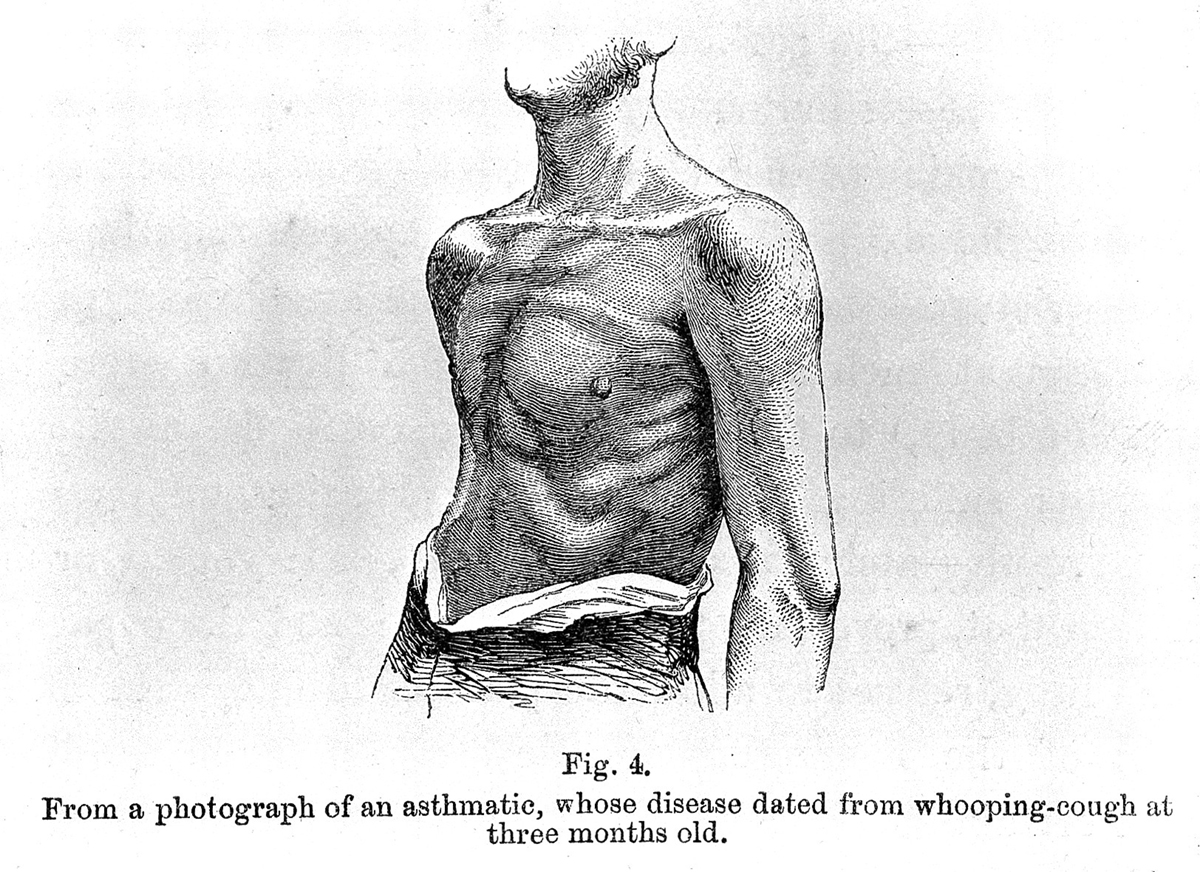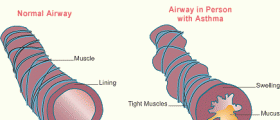
About Chronic Coughing
Symptoms of asthma usually include chronic cough, shortness of breath, wheezing and chest tightness. These can be present in both patients who just started to experience symptoms of asthma and for those whose asthma is not controlled well by the medications.
Cough is developed as the defense mechanism of the human body, and in most cases this is the way your body is fighting against something like infection or the mucus. Also, by coughing your body might try to expel some foreign material that got into your body. Chronic cough that lasts for more than 3 weeks must be taken care of. In most cases, if the patient is not smoking, it happens in some medical conditions such as post nasal drip, gastrointestinal reflux disease (GERD) or asthma. Sinusitis, chronic bronchitis, pertusis (whooping cough) and pneumonia are other possible causes of chronic cough, as well as chronic obstructive pulmonary diseases (COPD).
When a person suffering from asthma experiences chronic cough it usually happens at night, and may worsen with cold air or in case of viral infections. Doctors use frequency of these night coughing episodes to determine the success of the applied treatment. Even if you are not diagnosed with asthma, always consult your doctor when you experience night cough, chest tightness or wheezing. All these symptoms might indicate asthma and your doctor may want to run several tests to properly diagnose the condition you are suffering from.
Apart from experiencing chronic cough for more than 3 weeks, you should consult your doctor if the night coughing causes sleeping problems for you. Visit your doctor if there is some significant amount of pain associated with coughing or even passing out because of these episodes. Patients who notice that they cough out some blood should also make an appointment at their doctor’s.
How to Treat Chronic Cough
When you consult your doctor, he or she will certainly want to diagnose your problem, and for that they might use different tests, such as X-rays or spirometry, and also ask about your medical conditions and allergies and also about the medications you have been using.
If you are diagnosed with asthma after these medical inquires, your doctor may prescribe different medications to treat symptoms you have. For acute control of chronic cough, doctors usually prescribe: Albuterol, Maxair, Proventil, Ventolin or Xopenex. All these drugs are short acting inhalers and they will successfully manage your symptoms.
For the treatment of chronic coughing caused by asthma, there are some steroid medications like: Aerobid, Alvesco, Asmanex, Azmacort, Qvar, Pulmicort or Flovent.
















Your thoughts on this
Loading...